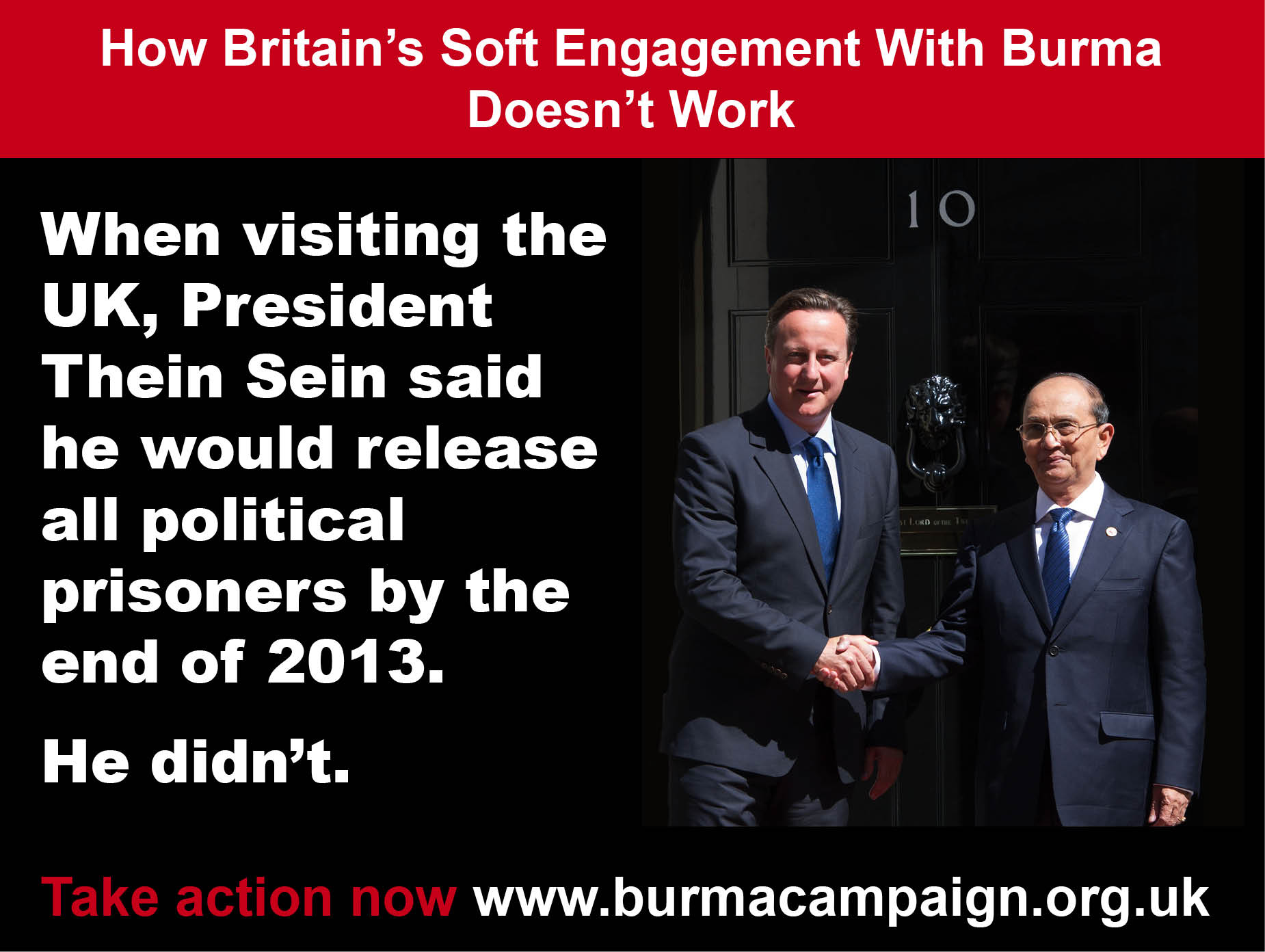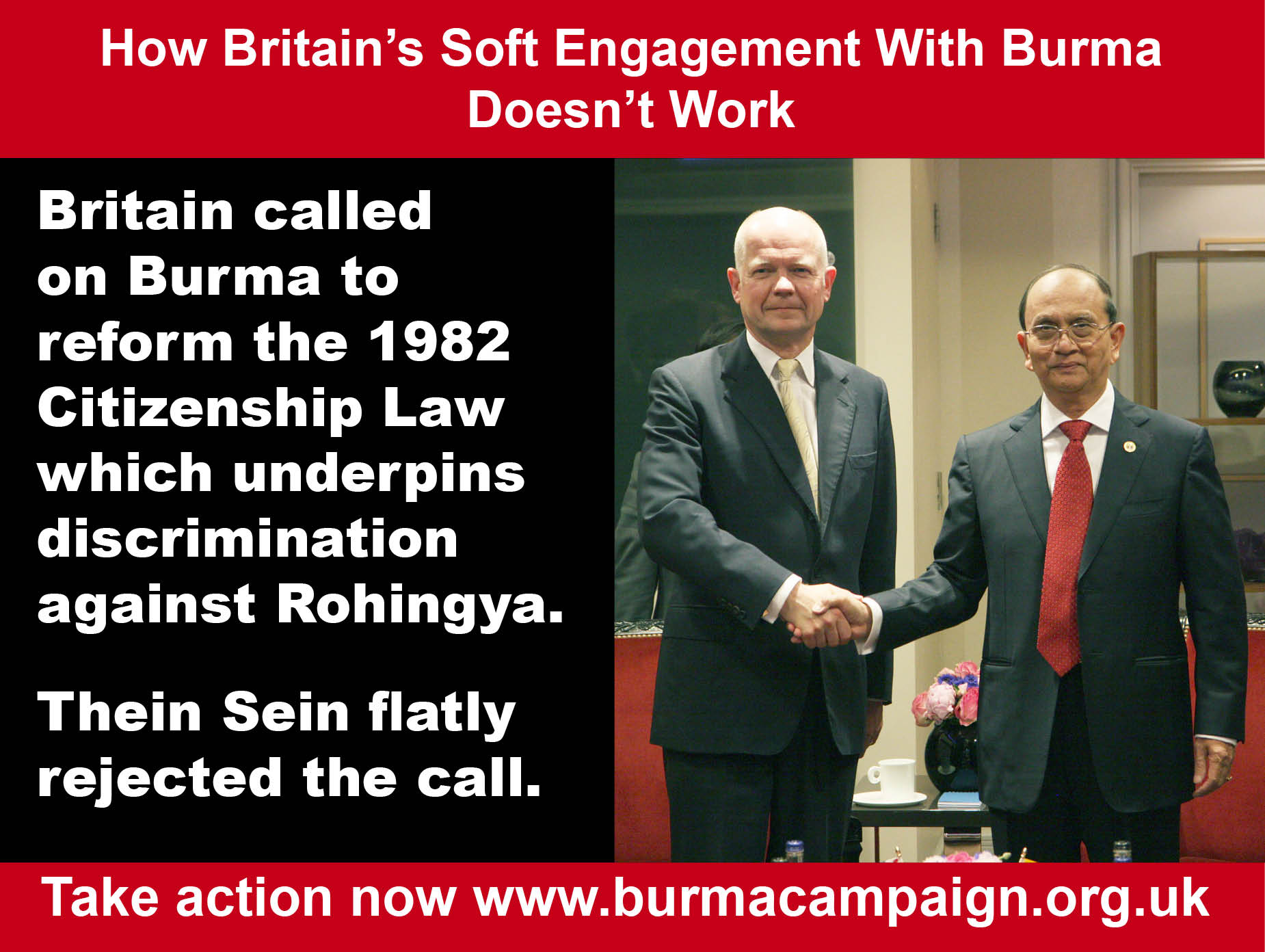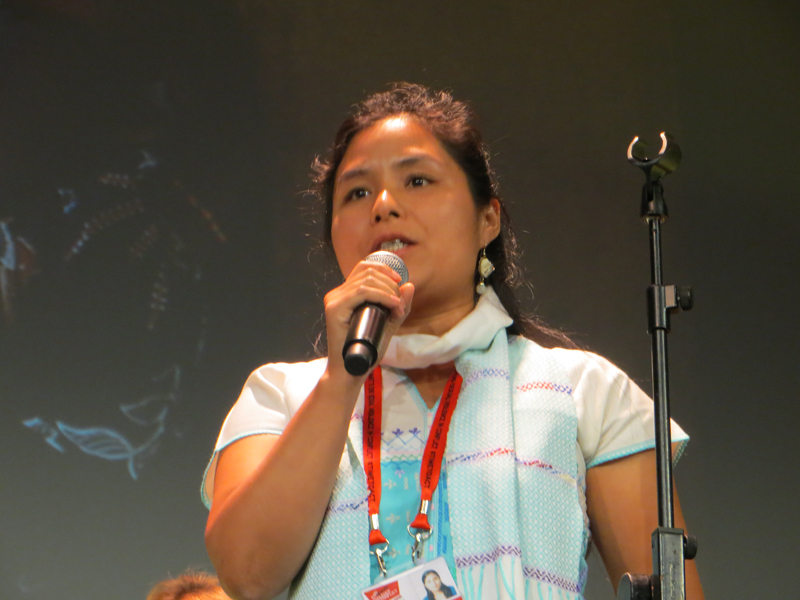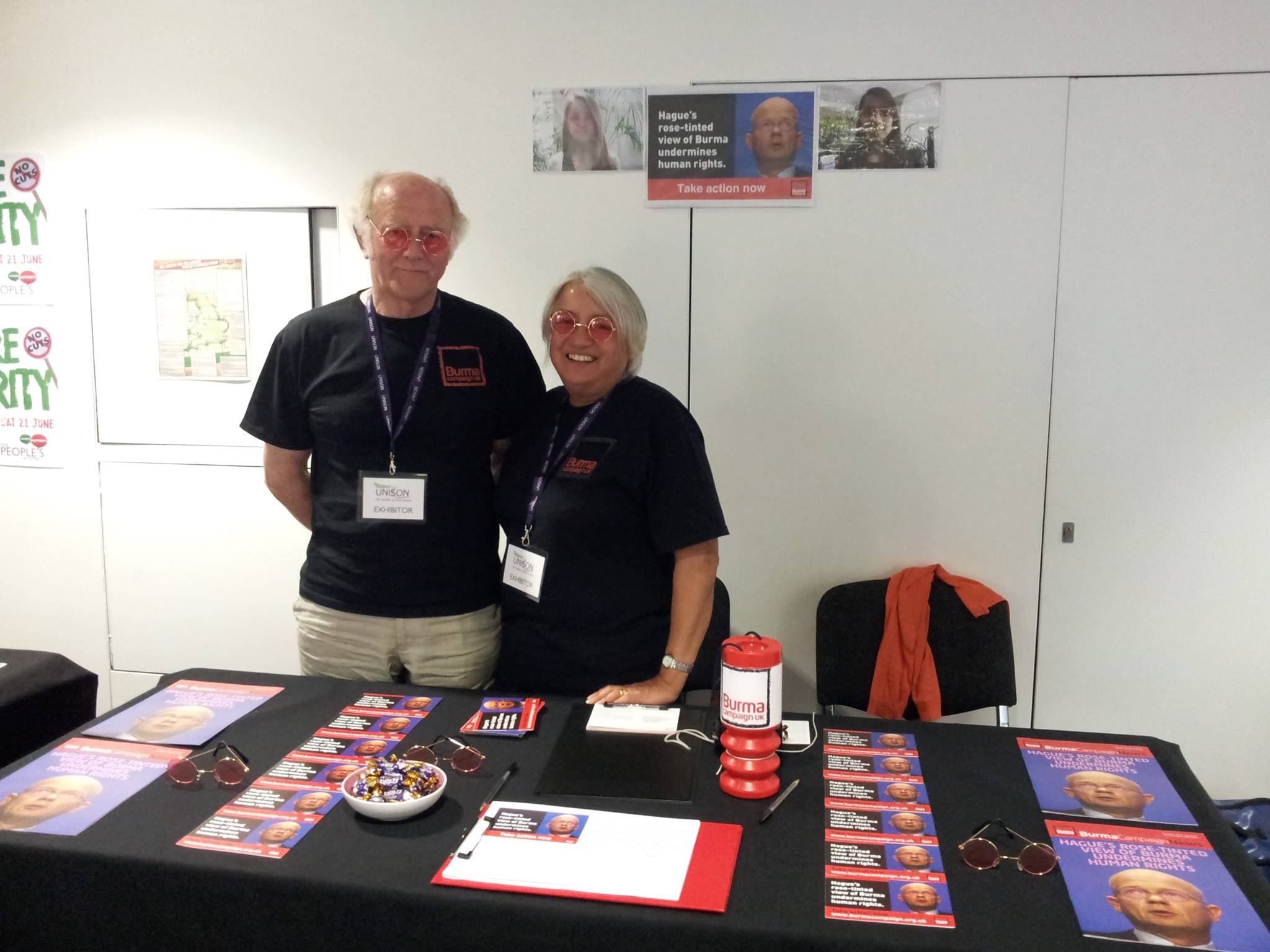Is the EU Supporting Authoritarianism in Myanmar?
Burma Campaign UK is quoted in an article in The Diplomat:
“As long as the foundations of military rule remain in place, the large EU funds flowing into Myanmar carry the heavy risk of supporting authoritarianism, instead of democracy. “The process of closer partnership should be frozen, along with all programs building government capacity except for health and education,” said Mark Farmaner, director of the Burma Campaign UK. ‘EU aid should not be used to help build a more modern and efficient authoritarian government.'”
You can read the article here.
Nine Ways British Aid Can Help The People Of Burma
The British government is spending more than £60m a year on aid to Burma, but not all that aid is reaching the people who need it, and a lot is going on programmes which help the military-backed government. Here are nine ways to make improvements.
Debate on Burma in the British Parliament
Yesterday, there was a debate in the British Parliament on the persecution of the Rohingya and other minorities in Burma.
Speaking in the debate, David Ward MP said, “Burma Campaign UK has produced eight steps that it believes the British Government could take to improve human rights in Burma. First, the Government should put human rights—not trade or political reform, but human rights—at the top of the agenda, elevating human rights as the Government’s policy priority in Burma. Secondly, the Government should support an international investigation into human rights violations against the Rohingya. We hear about various internal investigations, but an international investigation is required into what the UN special rapporteur believes to be crimes against humanity.”
How Britain’s soft engagement with Burma doesn’t work
Call for action after sexual violence summit
Article in Myanmar Times this week quotes Burma Campaign UK:
“Activists and human rights groups are urging Britain to maintain pressure on the government to combat sexual violence in conflict, as focus shifts to implementation of a plan to address the issue after Myanmar endorsed a UN declaration earlier this month.
“If sexual violence by the Burmese army continues unabated despite the government signing the declaration, it will be a blow not just to the credibility of the declaration, but also to the British government’s policy of soft diplomacy,” Mark Farmaner, director of Burma Campaign UK, told The Myanmar Times last week.”
Our volunteers Pam and Eddie in Brighton today, helping raise awareness of our campaign to change William Hague’s rose-tinted view of the situation in Burma.
Our Rose-tinted glasses campaign at the UNISON conference in Brighton today!

At the Unison conference in Brighton today, where our campaign to highlight the British government’s rose-tinted view on Burma is getting a lot of support!
Women from Burma delegation speak at the British Parliament.
A delegation of women from Burma spoke at a meeting in the British Parliament today. They spoke about the ongoing use of rape and sexual violence by the Burmese Army, as well as the situation in Kachin State highlighting the ongoing military offensive and humanitarian assistance for IDPs, Karen and Shan State, refugees return, the peace process and new laws restricting freedom of autonomy to choose the religion and women’s rights.
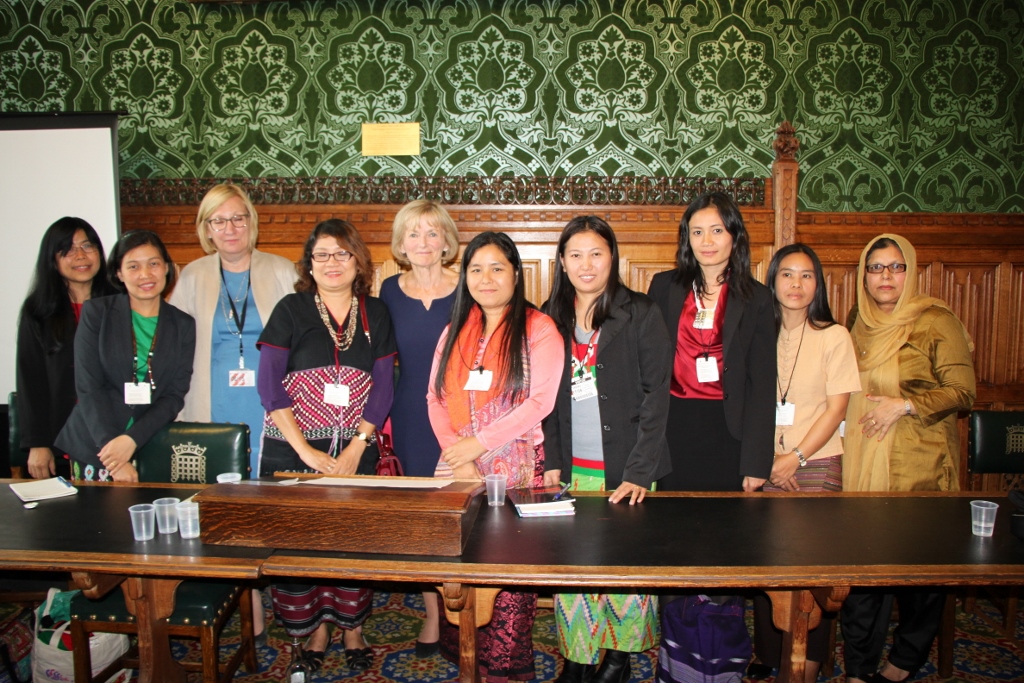
The delegates from Burma include:
Tin Tin Nyo from Women’s League of Burma (WLB)/BWU
Naw Susanna Hla Hla Soe – Karen Women Empowerment Group
Wahku Shee – WLB/ Karen Women Organization
Moon Nay Li – WLB/ Kachin Women’s Association Thailand – KWAT
May Sabe Phyu – Kachin Peace Network
Nang Hseng Moon – WLB/ Shan Women’s Action Network (SWAN)
Women from Burma Attend Global Summit To End Sexual Violence In Conflict
A delegation of women from Burma have joined the Global Summit To End Sexual Violence In Conflict being held in London this week, hosted by British Foreign Secretary William Hague and Angelina Jolie.
Moon Nay Li, coordinator at the Kachin Women’s Association Thailand (KWAT), writes in Mizzima: “If the international community is serious about ending sexual violence, it will have to be willing to change its engagement with Myanmar. It will have to issue a clear ultimatum to the Myanmar government: that either it establishes an independent investigation, with international expertise, into sexual violence in Myanmar, or the UN will conduct its own investigation.”
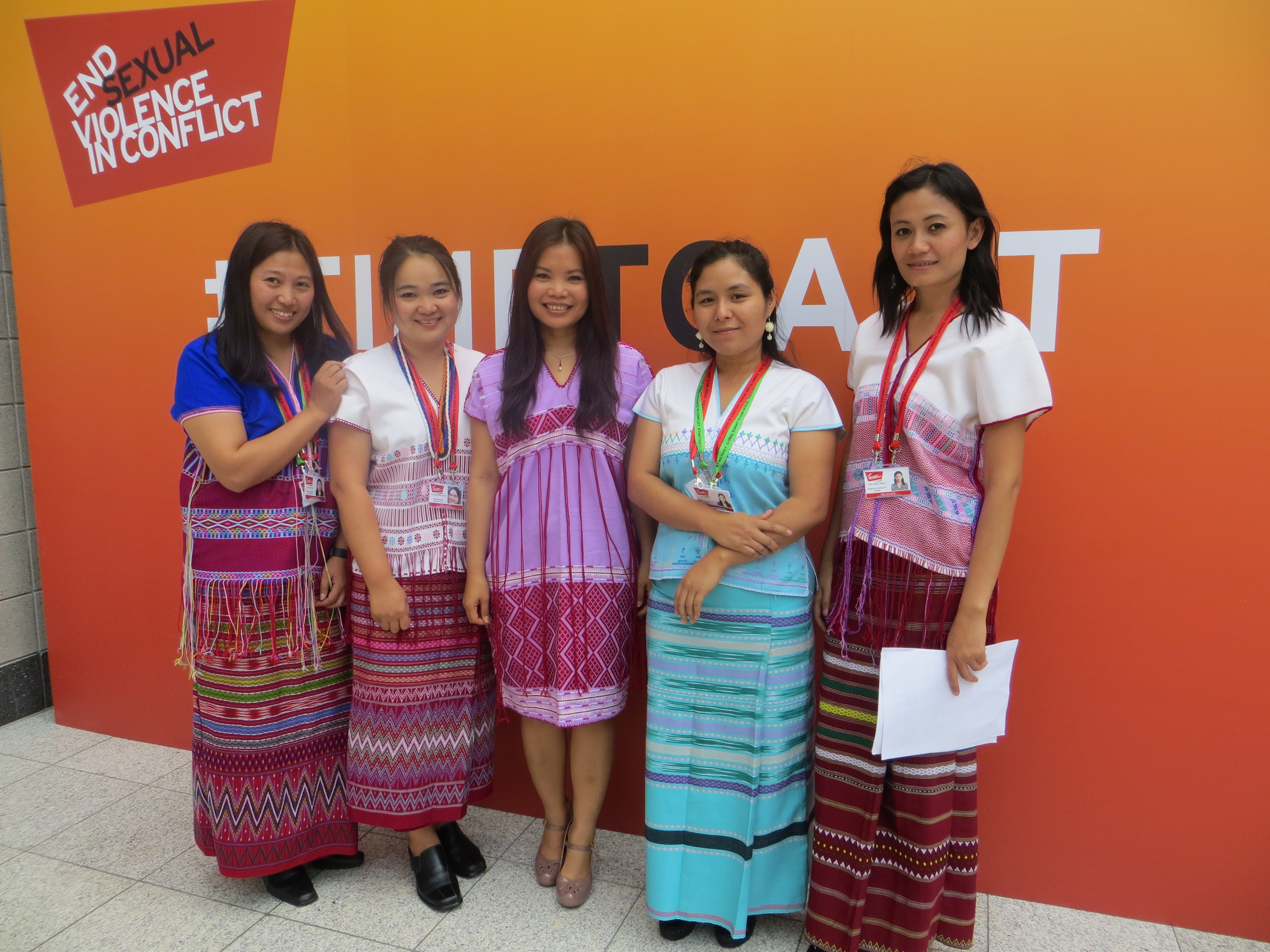
Moon Nay Li, K’Nyaw Paw, Zoya Phan, Tin Tin Nyo and Wakhu Shee at the Global Summit to End Sexual Violence in Conflict.
Rape summit aims to ‘shatter impunity’
Article in the Democratic Voice of Burma today as the British government hosts an international summit on rape in conflict, aiming to “shatter the culture of impunity for sexual violence in conflict”. A delegation of seven women representing Burmese civil society groups are attending the summit.
“Rape and sexual violence by the Burmese Army has continued unabated in conflict zones in Burma,” BCUK director Mark Farmaner told DVB on Tuesday. “In fact, since Thein Sein became president, Burma Campaign UK has received an increased number of reports of rape by the Burmese Army.”

